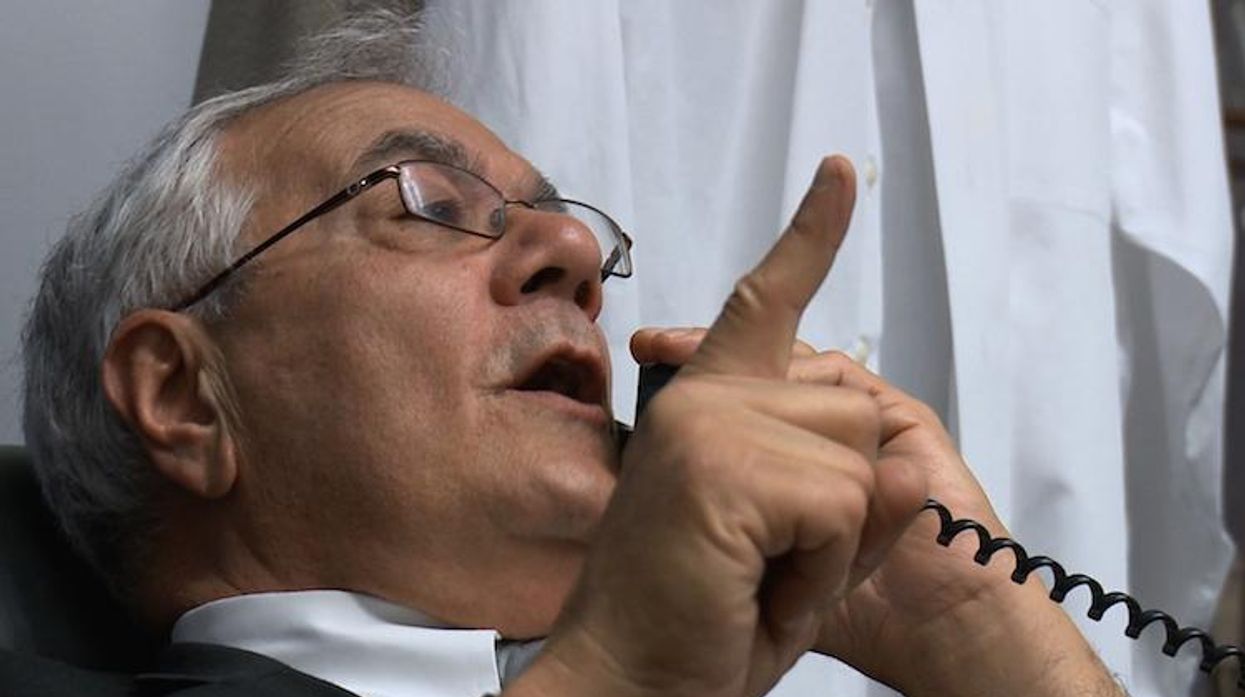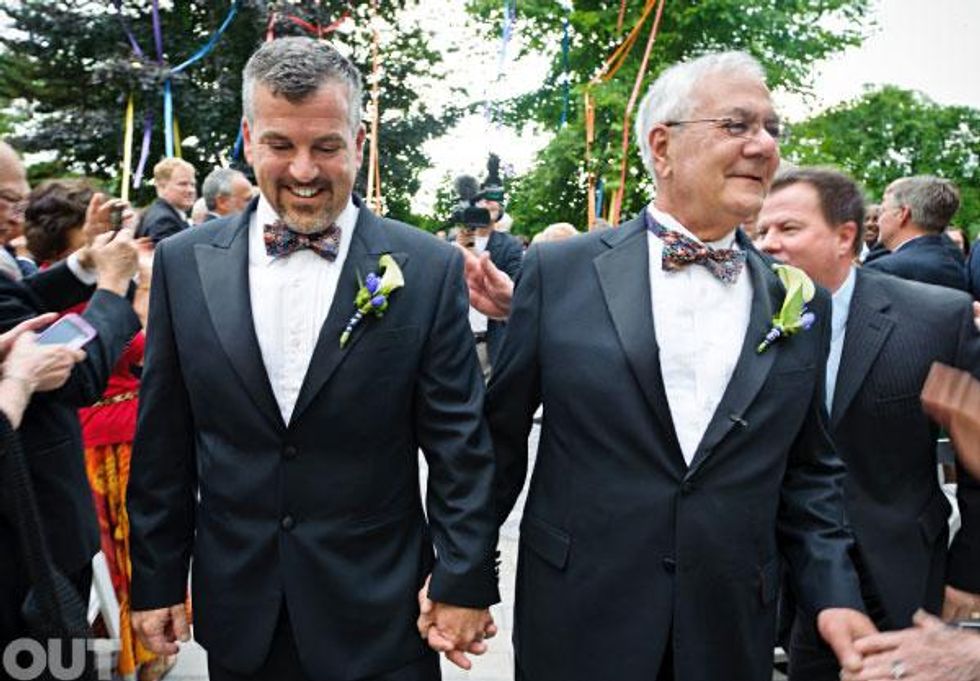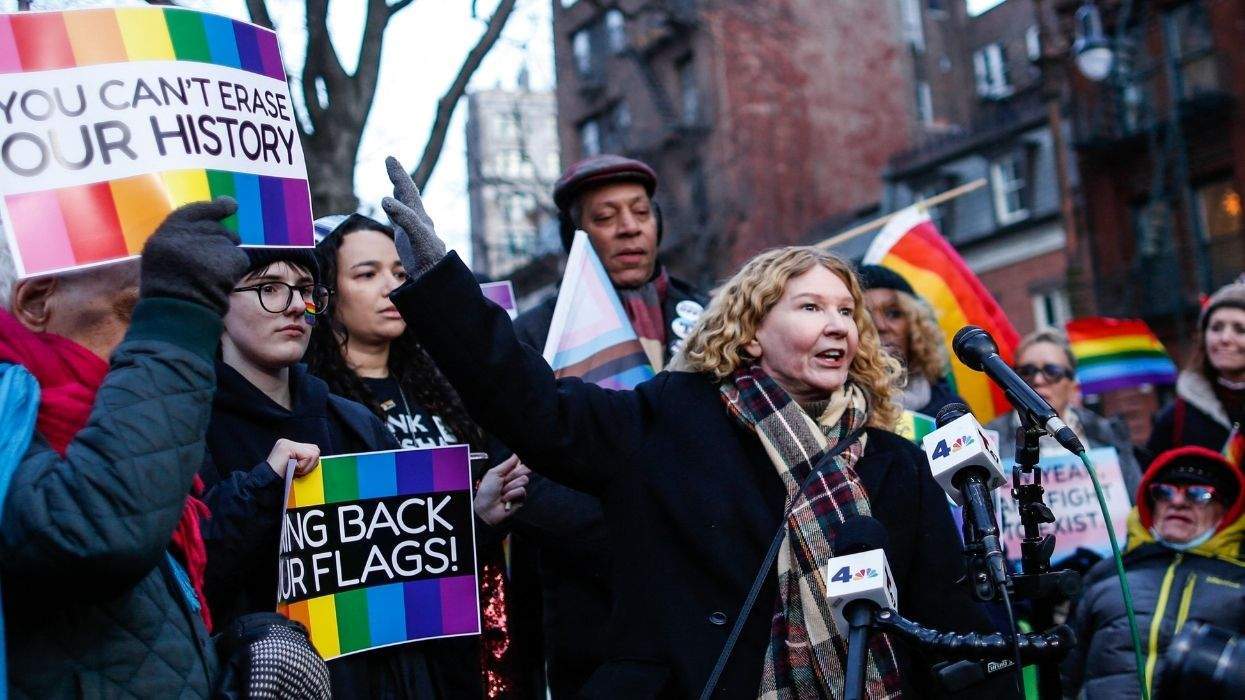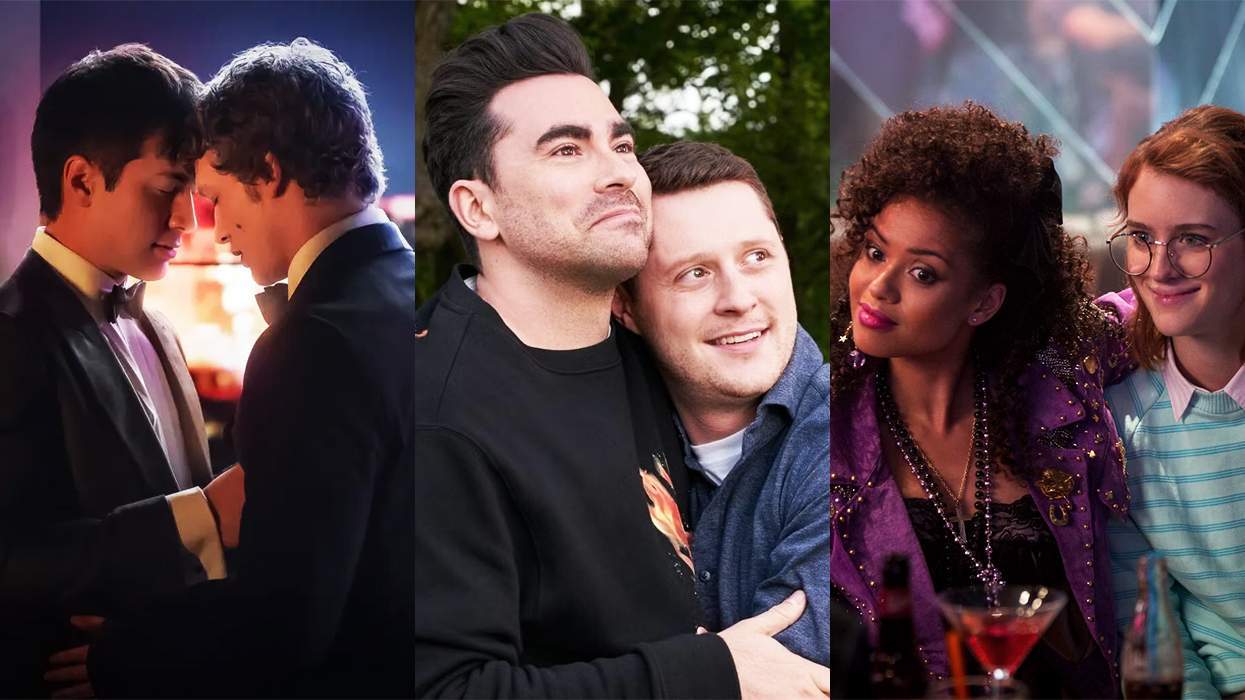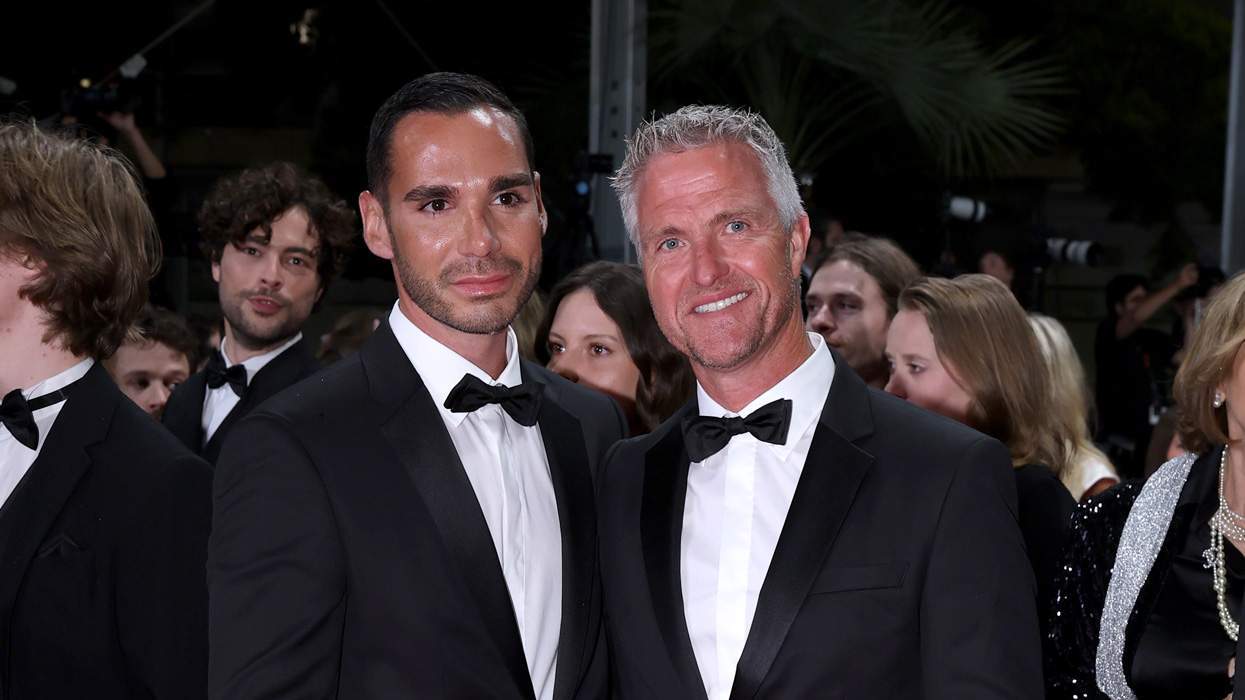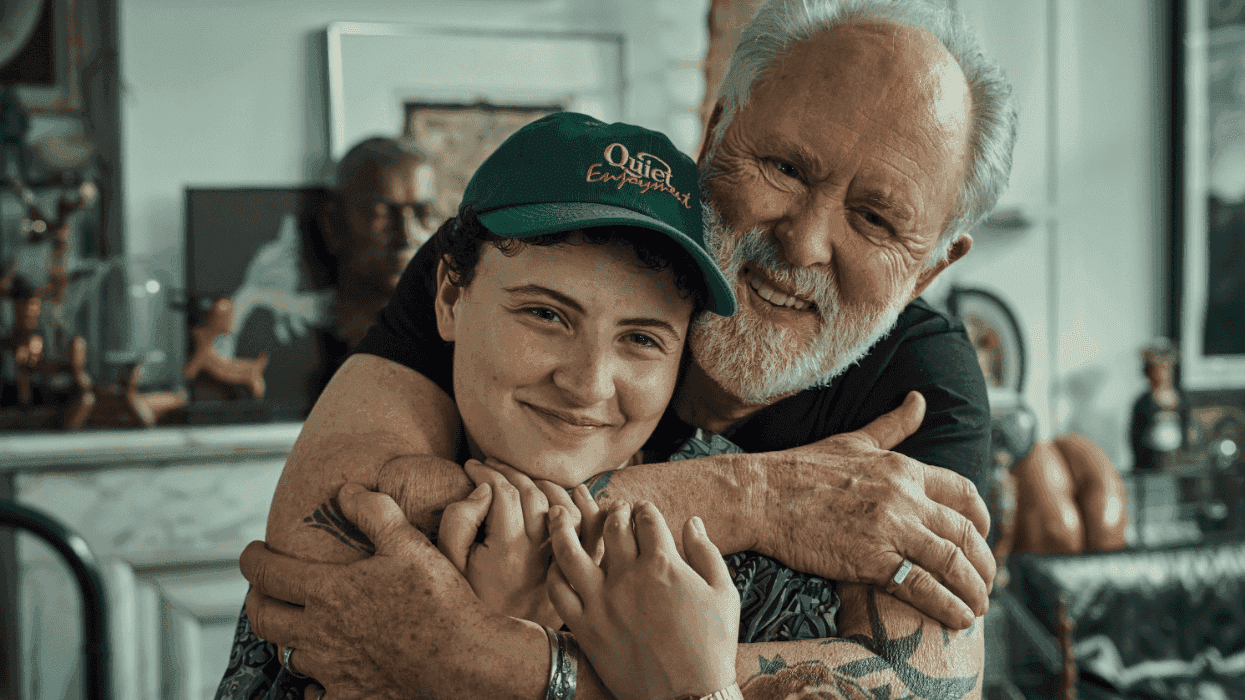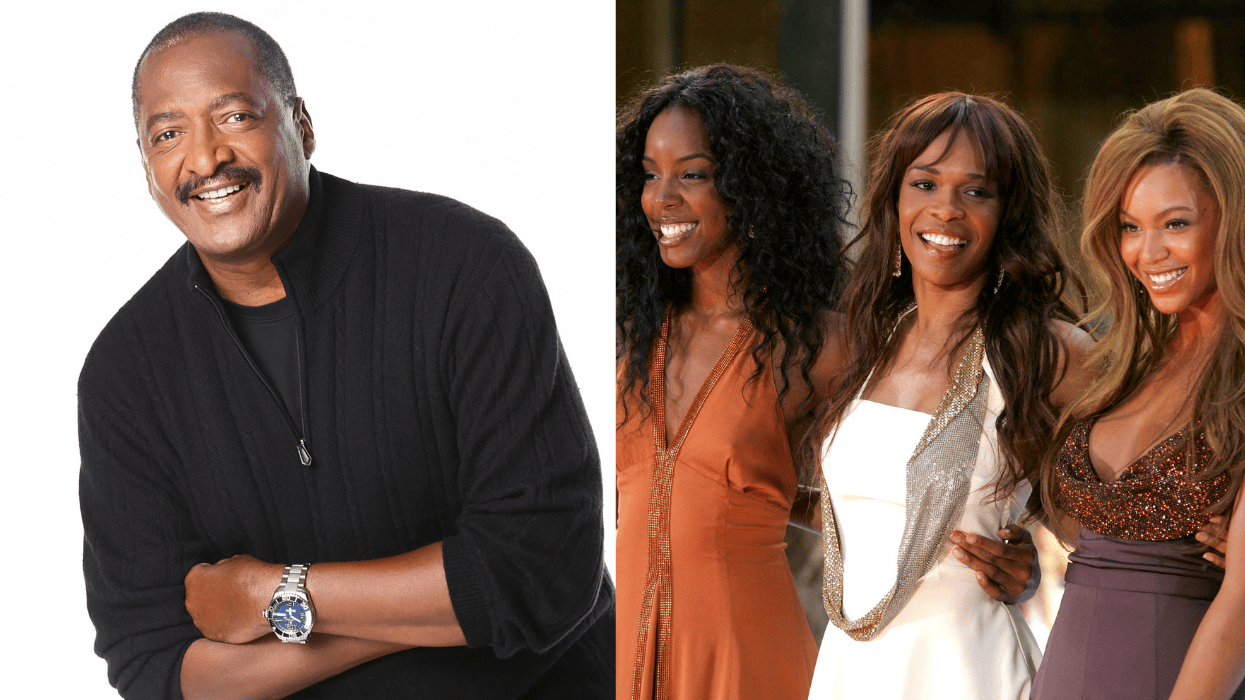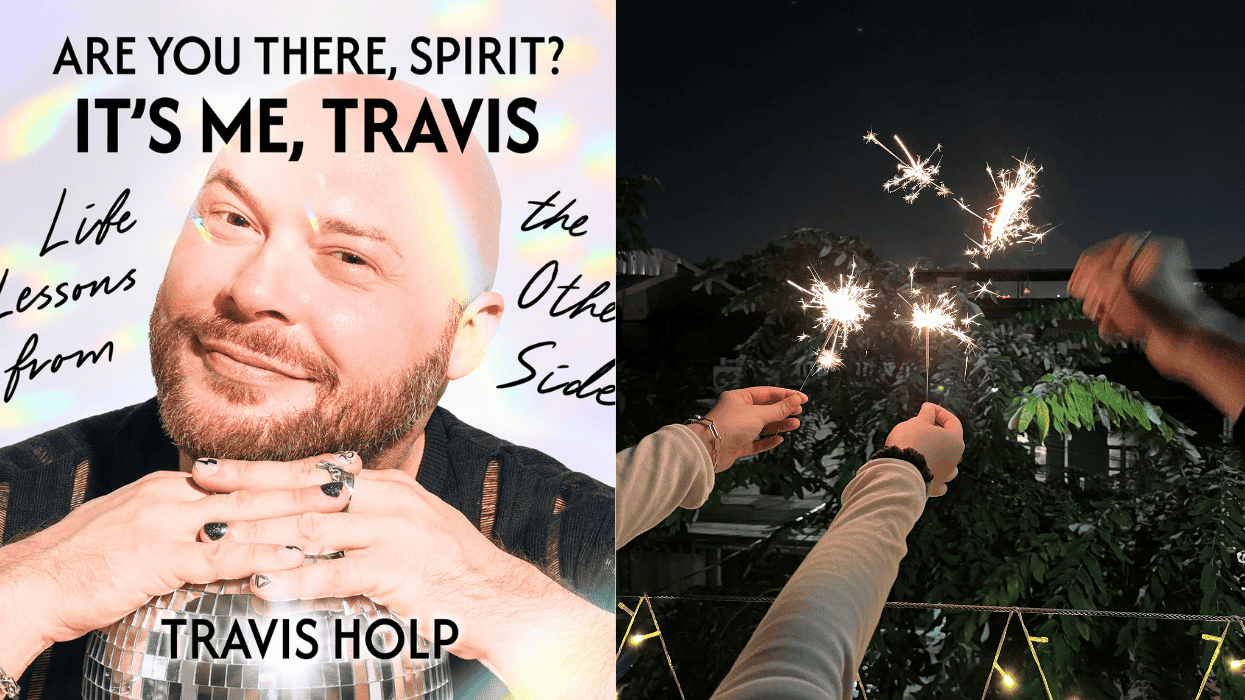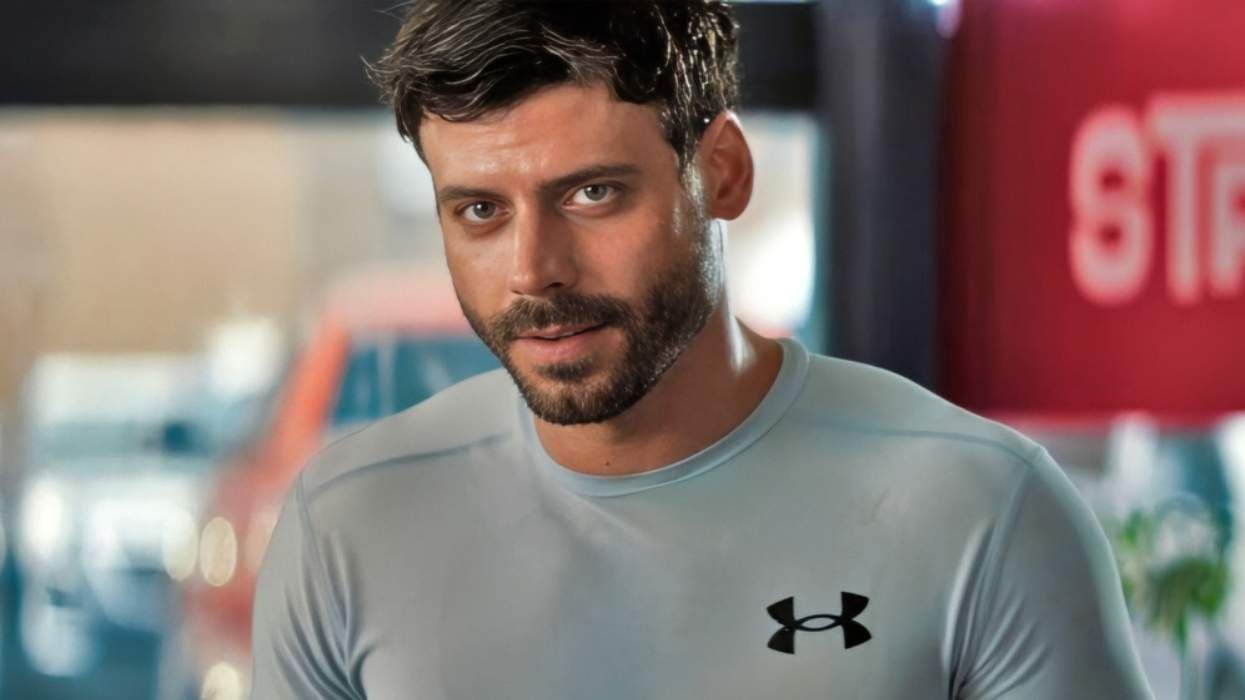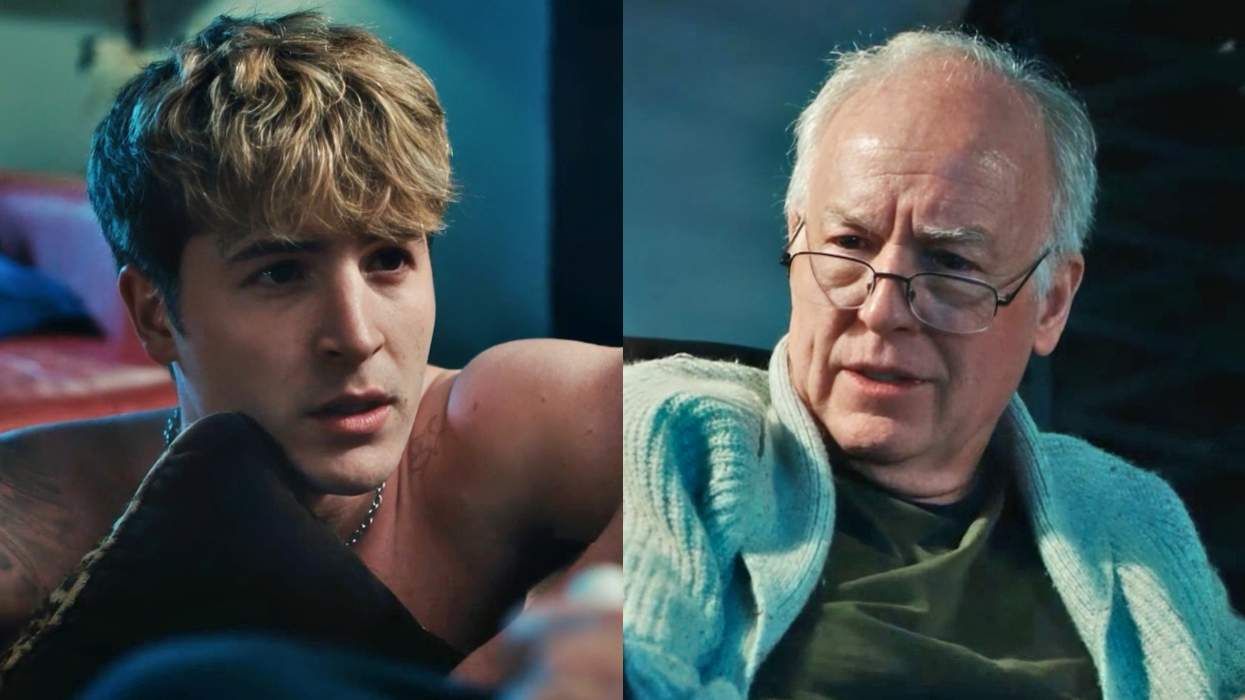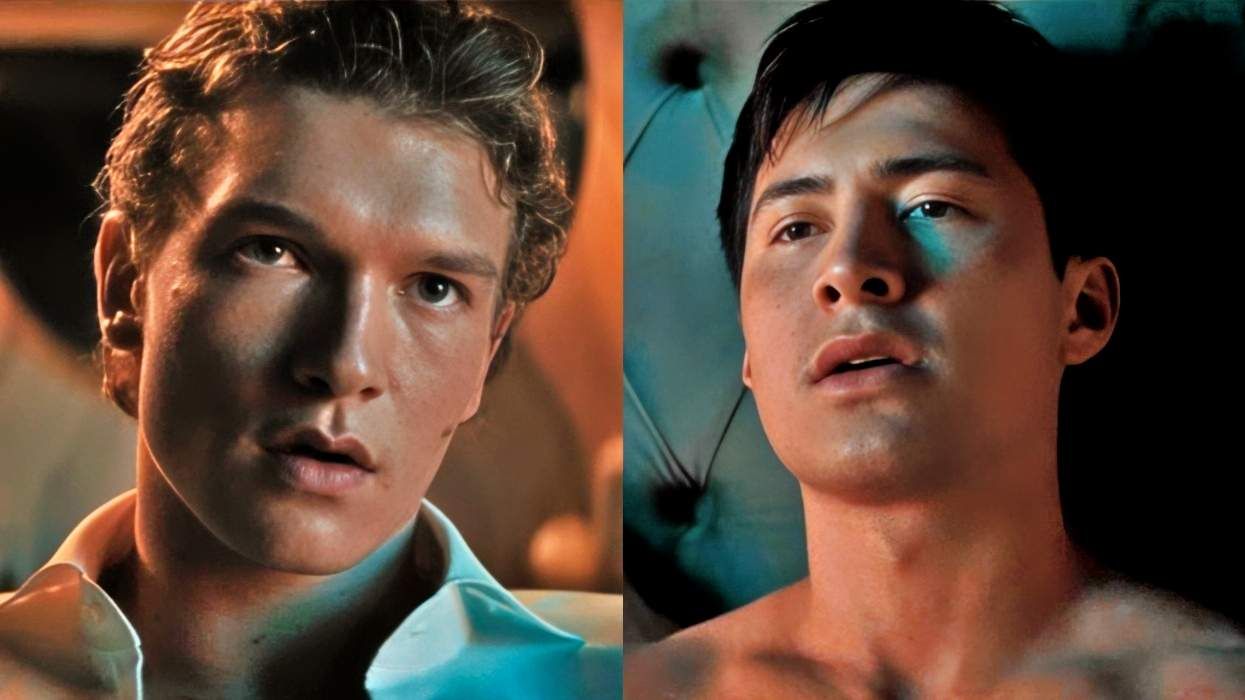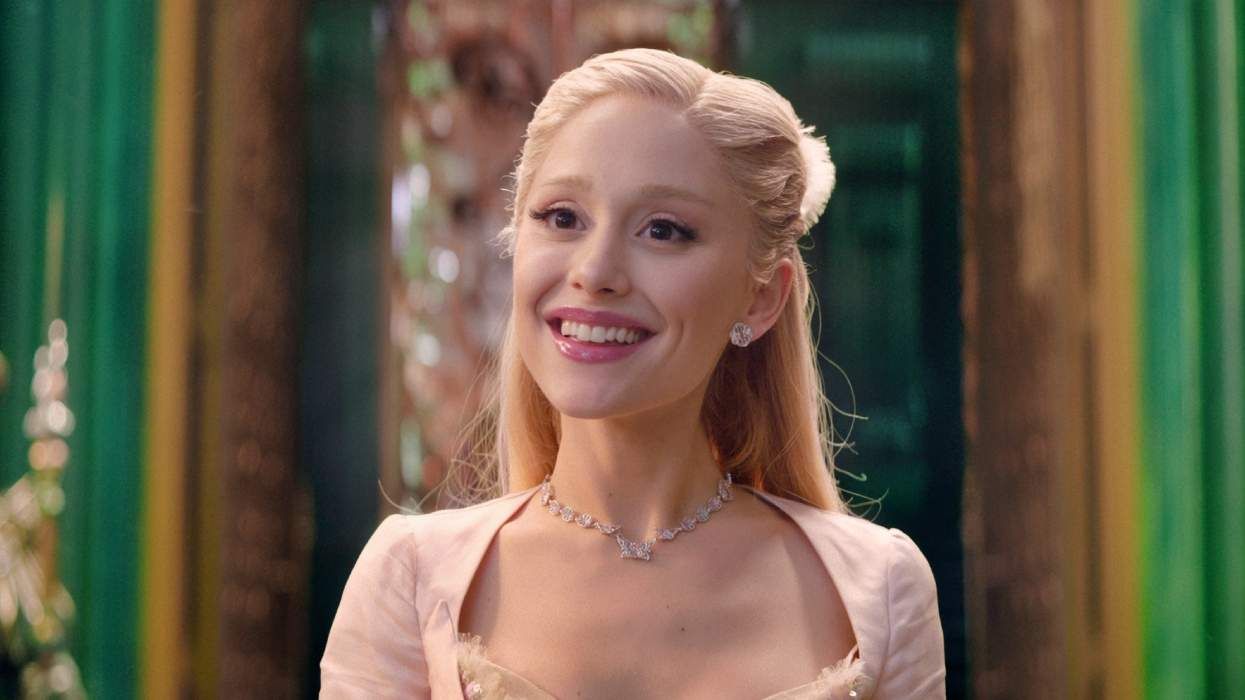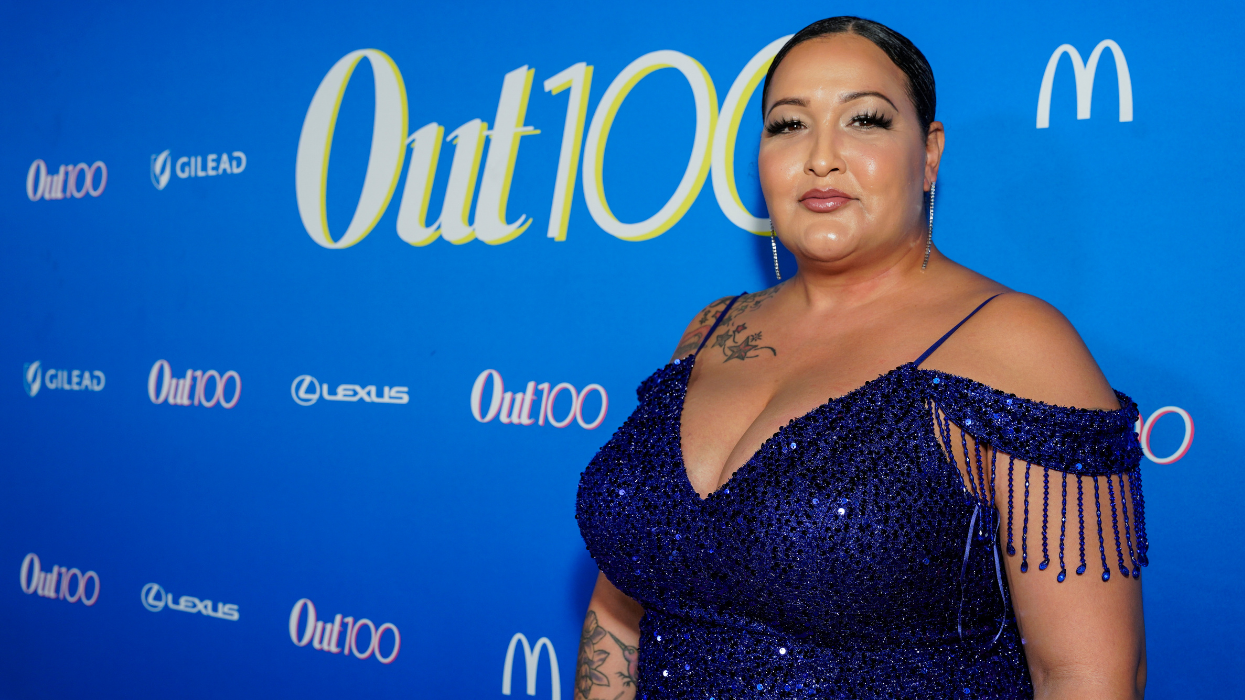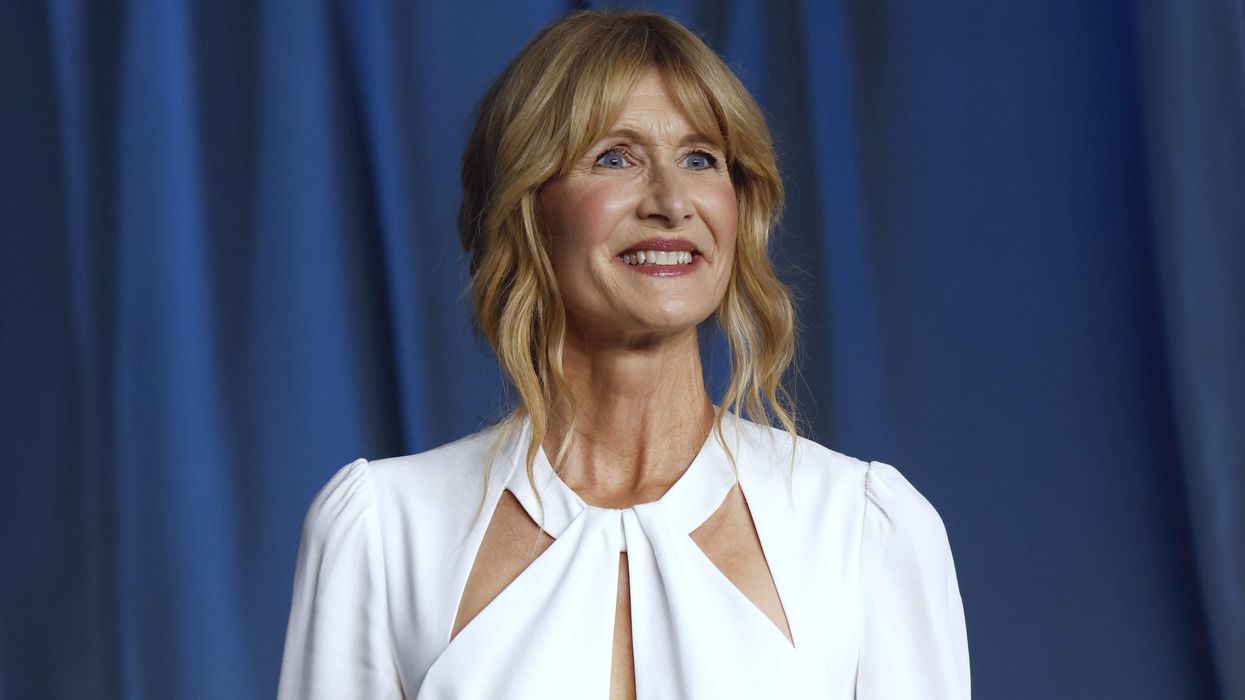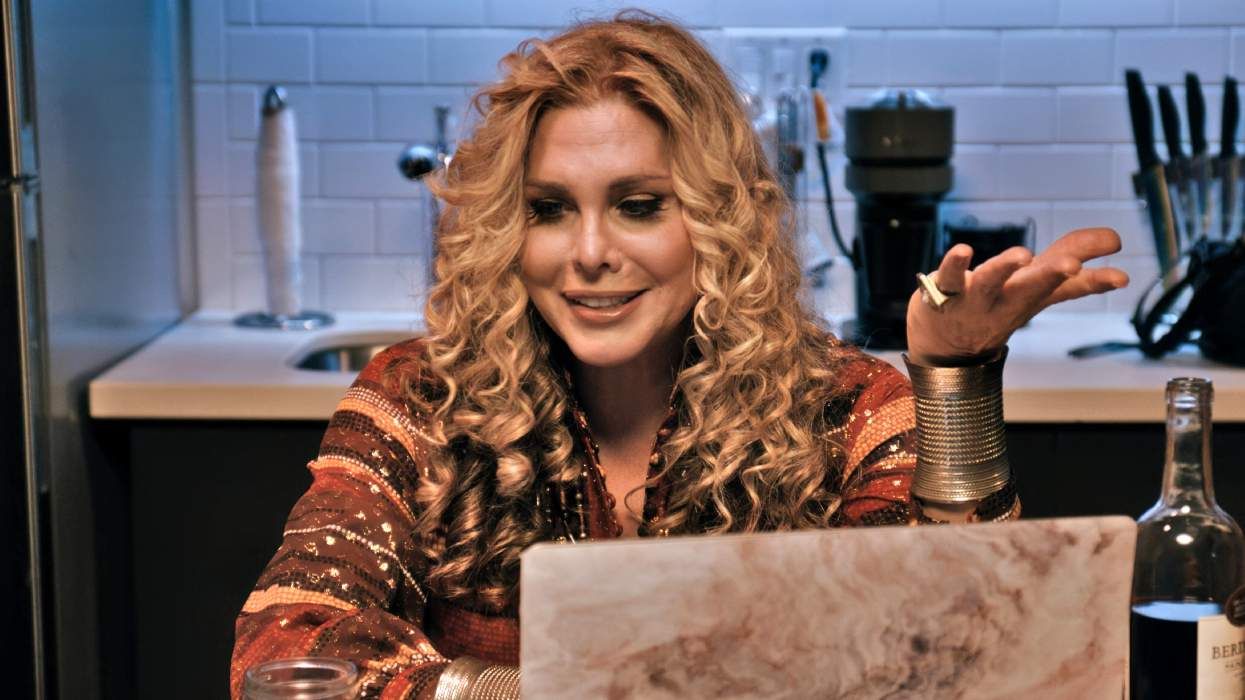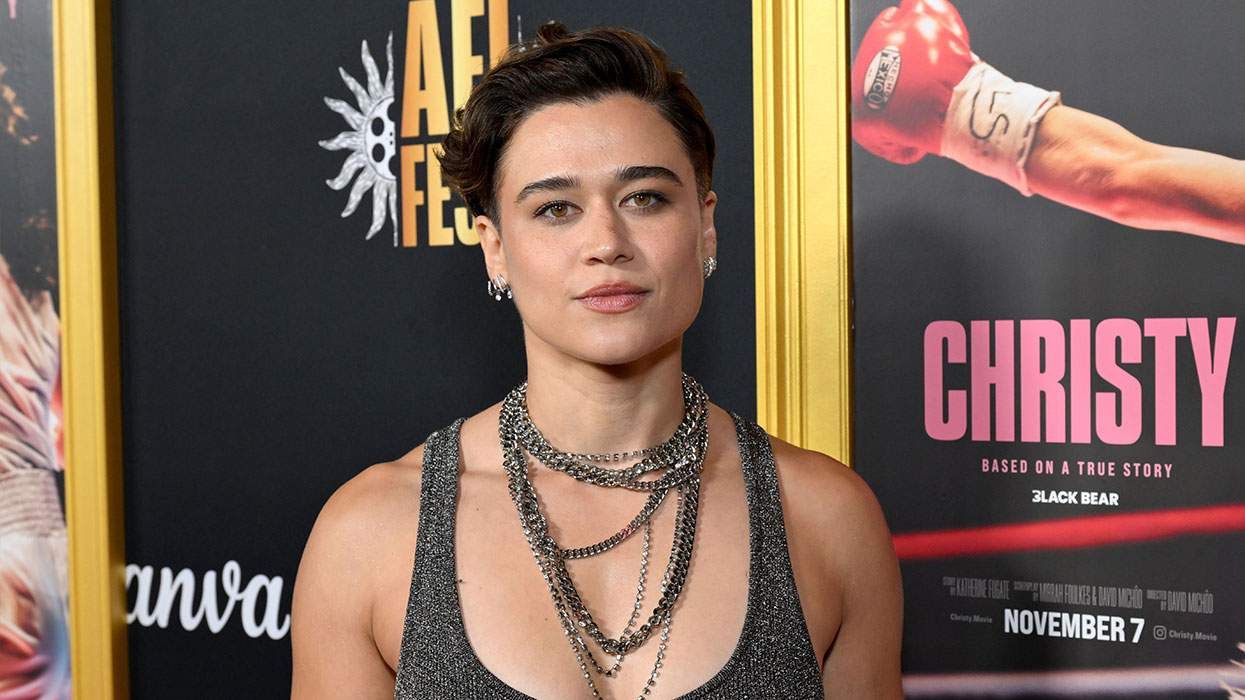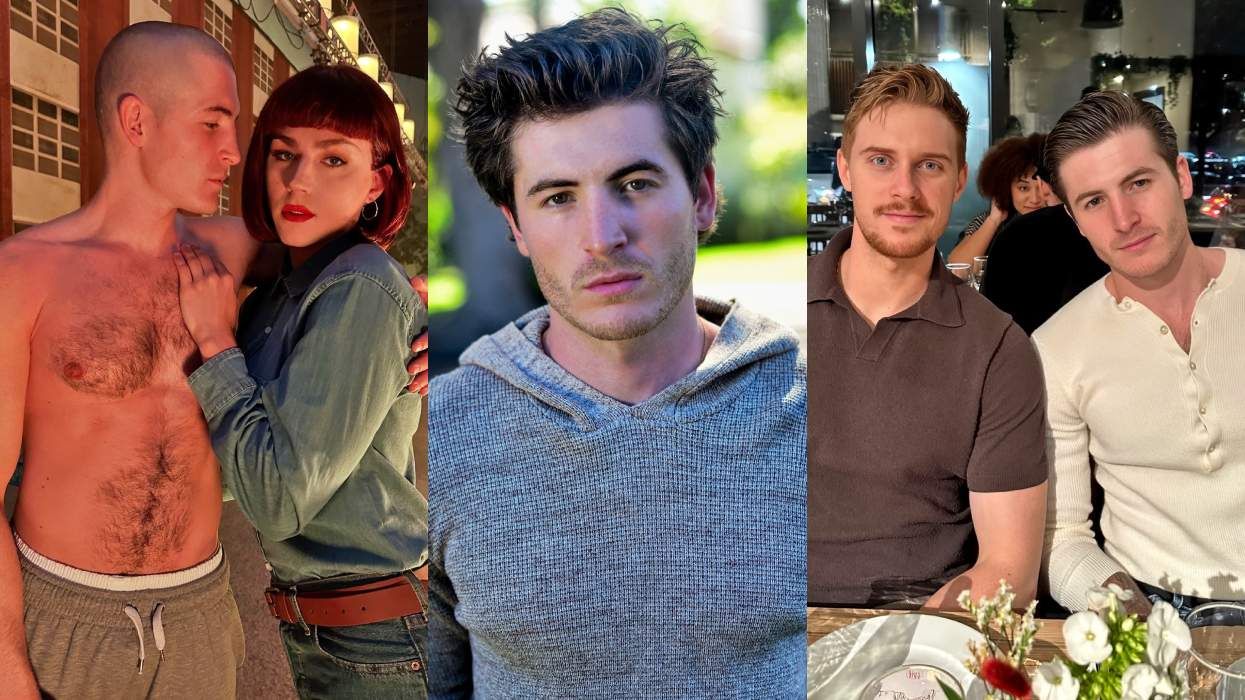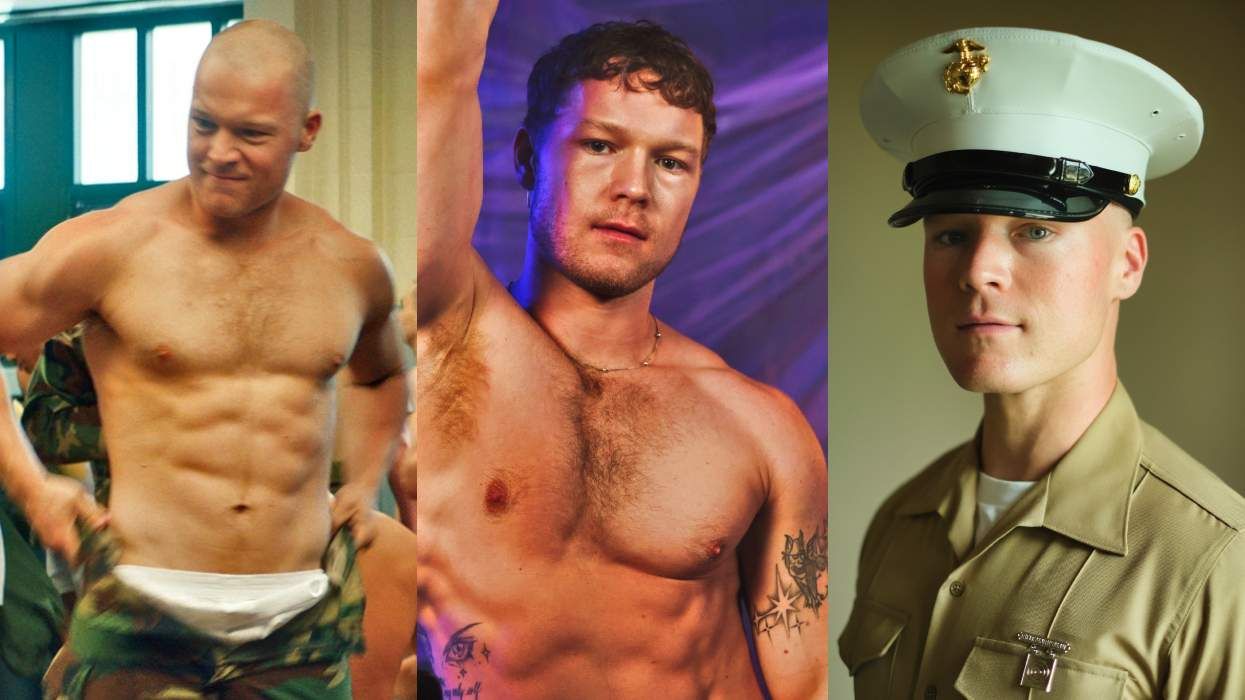In the long battle for LGBT rights and equality, few people have figured as prominently as Barney Frank. For 32 years, he served in the House of Representatives, fighting from the very beginning for the underprivileged and disenfranchised. In 1987, he made history by becoming the first member of Congress to publicly come out. In 2013, he made history again, becoming the first sitting Congressman to marry his same-sex partner.
RELATED | Encore Performance: Barney Frank & Jim Ready
With wit and intellect, a razor-sharp tongue, and raucous sense of humor, Frank's political career has been a full one, enduring scandal and, as Chair of the House Financial Services Committee, shepherding the United States through one of its greatest economic crises. It's no wonder that Sheila Canavan and Michael Chandler set out to document his decades of public service in the 2014 documentary, Compared To What? The Improbably Journey of Barney Frank. Tonight, Showtime will be airing the documentary for the first time (9 p.m. ET/PT), giving viewers another chance to see the many sides--personal and political--of an American legend.
Ahead of the premier, Out spoke with Frank about the politics of today, presidential hopefuls, and life after Congress.
Out: Your documentary premieres on Showtime this Saturday, more than a year after its initial release. What do you make of the continued interest?
Barney Frank: Well, I'm obviously flattered by it. I should clarify, I had no editorial input into it--when my husband and I saw the first version, there were a couple of things I didn't agree with--but on the whole it's very complimentary. It is an overwhelmingly positive discussion of being gay, of being a gay couple in the public eye, of our position on the issues. I'm very glad, from the standpoint of our continuing fight for full legal equality, to have that on TV. And one of the things they do is to have some excerpts from some debates I've had on LGBT rights, and I think they fairly show how stupid the opposition arguments have been.
The documentary deals with your decision on whether or not to come out, how to come out, whether it would affect your career. Do you think things have changed since you came out in 1987?
It's gotten a lot better, and I feel good about that. I think, to be honest, that I contributed some to that: When I came out, a little more than 28 years ago, it was actually less of a problem than I thought. It was a net plus! For some people, coming out has become easier--if you're in the right city and have the support of your family and work--but there are still parts of the country where its problematic. I hope that the positive experience I had is some encouragement to people, that you can do this and you can thrive and prosper.
Looking at this current Congress, what are your thoughts? Do you miss being in the House?
I do not. I am very grateful that I had a chance to do that for 32 years, but I would not want to go back now, because I'm tired. And it's not because there's too much fighting going on. The fighting has a very simple cause: that right wing Republicans have taken over their party, it's the dysfunctional Right Wing Republican influence in the House. But to be honest with you, I'm very good at rancor. I don't mind at all getting into fights, having a loud debate, an angry debate with people I thought were fools or, in some cases, not fools but just terribly wrong. What we're seeing today, that's easier than what I was doing. The hardest part of my job was, say, with the financial reform bill, getting people with different views all together behind one thing. I just wouldn't have the emotional energy to do that today. I'm still somewhat active today, writing, speaking, doing TV, but now, I do these things and it's over. When I was in Congress, nothing was ever over, I was never totally at ease. It got to the point where the phone was my enemy. When the phone rang, it means that somebody caused some problems somewhere and I had to deal with it. So, I feel like I'm emotionally relaxed for the first time in a very long time.
The documentary ends with your beautiful wedding ceremony and party. How have things been since then?
Oh it's been great. I did have the book, which took up most of the first two years of my retirement, and then the book tour, and now I write six columns a week, but I'm able to deal with that. I'm able to spend time with Jim. I relax. I do what I want to do, and I'm not under stress constantly, and that's a qualitative difference. I'm not bored, I get more requests to do things than I want to do or will do, and I get to spend all this time with Jim.
You tried to get ENDA (Employment Non Discrimination Act) passed many times. Now that it's been reborn in the Equality Act, do you think that there's a chance of it passing anytime soon?
No. I think, unfortunately, with the Republicans at the moment, it's probably going to take a Democratic president, Senate, and a very large Democratic presence in the House until that gets done. While I understand why they wanted to put it all together into one bill, I think mostly for symbolic purposes. The fact is, the Civil Rights Act for African Americans never was one bill. Housing was separate, employment passed in '64, voting rights in '65, housing in '68. My recommendation is that these all should have been filed separately this time, not as part of the Civil Rights Act.
Take the question of religious exemption. It is not clear to me that four years from now things will have changed. With regard to race, there is zero religious exemption, with regard to same sex, it's different. For example, no church is allowed to discriminate in its pick of clergy based on race, the Mormon church had to give that up. On the other hand, religion can discriminate against gender. So we treat race and gender differently in terms of discrimination. I think there is a very good chance within the next ten years we're going to pass most of the non-discrimination laws, fully inclusive of transgender people, but not as one big bill and not, my prediction, as part of the Civil Rights Bill. Because, as optimistic as I am about sexual orientation and gender discrimination, I do not foresee the point that we will treat it exactly the way that we treat race.
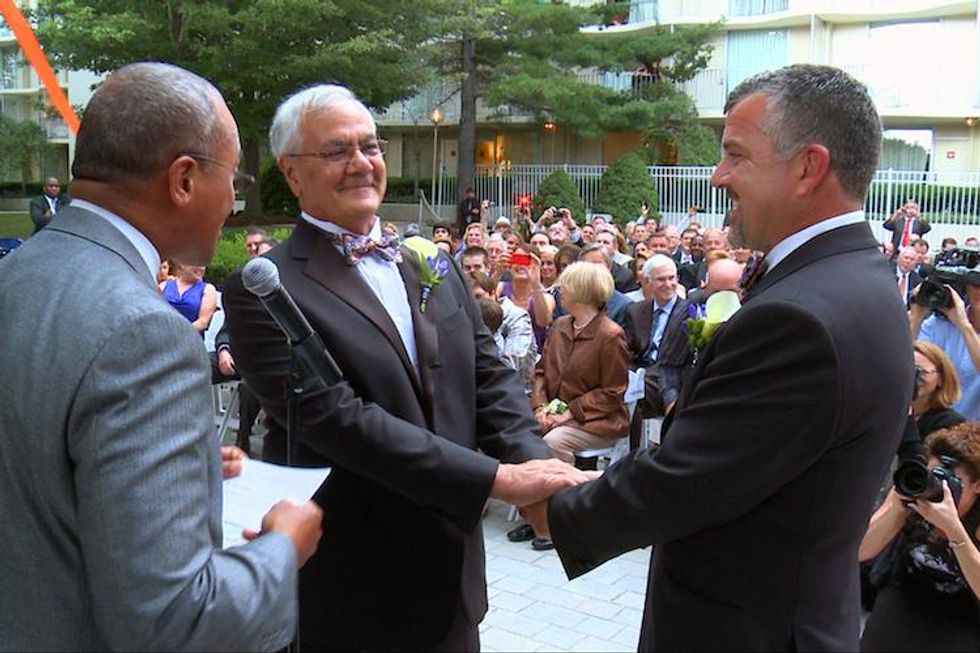
This has obviously been a big year, big summer for equality. What were your thoughts when you heard the Supreme Court's decision?
Relief. I was pretty sure that was where it was going to go. It seemed to me that as Anthony Kennedy, the senior justice on the majority side in three previous cases had assigned himself the job of writing the opinions, this was obviously something he felt strongly about. So I was very confident that it was going to go our way.
At an event last winter, you said that Hillary Clinton was the only candidate who would support our rights who could win. Do you still stand by that?
Yes, Bernie Sanders can't become president and, in fact, I think it's a mistake of people to go for him. I admire what he stands for, he's been a supporter of LGBT rights, he was for marriage earlier, but she's the only candidate we have who can win the presidency.
Across society as a whole, while the opposition to LGBT rights and same-sex marriage is becoming more intense--
Opposition is becoming more intense? It's the other way around, we're getting more support.
As a whole we are, but there are pockets increasing their rhetoric.
Oh that always happens. When nothing is happening, people don't get upset. Every time you make progress in something, some of those who are opposed get more activated. But it's overwhelmingly, even in the most conservative parts of the country--I mean, how many Kim Davises can you think of? How many officials refuse to perform marriages? Only a handful.
Over the next few elections, do you think we'll see that change reflected in Congress?
I'm not sure. The Boehner overthrow is problematic. The right wing seems to be getting more ridiculous. I think, as long as the republicans are in power, nothing good will happen. The signs are very clear. They split off abortion from LGBT rights, and they are getting very aggressive trying to go after people on the abortion issue, but I think most republicans would rather not discuss the LGBT.
Towards the end of the documentary, you say that, post-retirement, you want to work towards making sure democracy works better. Do you want to talk about that?
Basically it's this: We're in the vicious cycle where people who would benefit from good government policies hate government, so then they vote for other people who hate government. As a result, the policies the government could do don't happen, and when the government doesn't do anything, people hate it even more, so then they vote for people who hate government even more. I want to break this cycle. I think if we can find a significant amount of money, we could do some programs like expanding healthcare, access to higher education, putting people to work in construction, that would show people once again what a good thing government is. To do that, I think, most important, we need to substantially reduce our military expenditure. Then, we should stop prosecuting people because they use drugs. That's a lot of money we could put into things, make education and health care less expensive. I think if we did that, people would become more supportive of government, and that would break that cycle.
The Barney Frank documentary debuts Friday, Oct. 23 at 9 p.m. ET/PT on Showtime.


